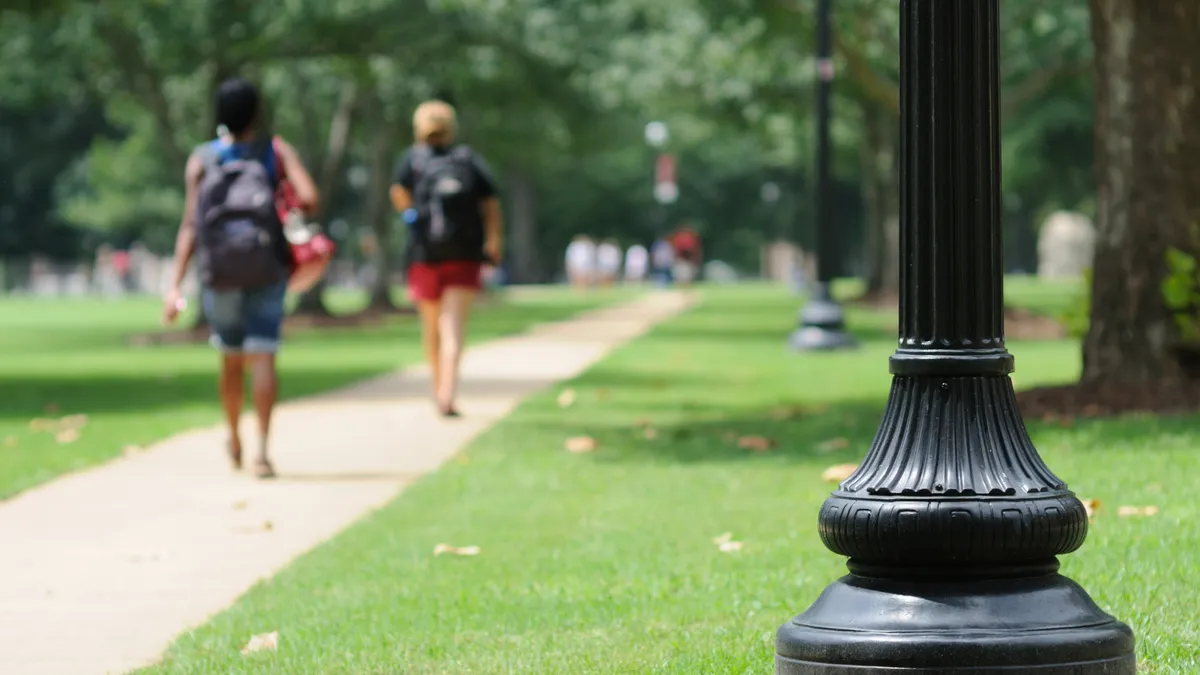Dive Brief:
- New York’s education department will no longer allow Olivet University to award college credit in the state, citing financial mismanagement and a failure to oust officials who led the evangelical institution when it was part of financial crimes several years ago.
- William Murphy, the state's deputy commissioner for higher education, wrote to Olivet President Matthias Gebhardt on June 30, informing him New York denied the institution’s appeal of a department decision earlier this year. It found Olivet had not met some of the state’s requirements to remain operational, including that it has insufficient resources to fulfill its mission and curricula.
- Olivet, which operated in Manhattan and Dover since expanding to New York in 2012, is reportedly under federal investigation for money laundering, just two years after officials pleaded guilty to similar charges.
Dive Insight:
Olivet is a private nonprofit that lists campuses in six states, plus Washington, D.C. It is not approved to offer state or federal financial aid. It was founded as Olivet Theological College & Seminary in 2000 by David Jang, its inaugural president and a prominent Korean pastor.
The university was catapulted into the national spotlight in 2018 when former Manhattan District Attorney Cyrus Vance Jr. announced indictments against the institution and several of its top officials, accusing them of money laundering.
Olivet in 2020 pleaded guilty to a conspiracy charge and falsification of records and was ordered to pay $1.25 million over two years.
The university has ties to IBT Media — the former parent company of such publications as Newsweek and the Christian Post — which was also indicted by the district attorney’s office and pleaded guilty to fraud charges.
The new federal probe centers not only on potential money laundering, but also human and labor trafficking and visa fraud, Newsweek reported. At least four local and federal agencies are investigating, according to the publication.
Murphy, in his letter to the Olivet president, wrote that the New York education department has concerns that “are too weighty and numerous” to justify allowing it to continue operating, despite the university making changes to satisfy the terms of its 2020 plea deal.
The university still employs several officials who led the university at the time of the guilty plea, Murphy noted. They include Gebhardt, who was formerly vice president of academics.
Tracy Davis, the Olivet president at the time of the 2020 plea deal, moved into a new role as dean of academic affairs, with a focus on the university’s New York operations, Murphy wrote. Newsweek reported in April that Davis no longer works at the university.
Barnabas Jung remains as the university’s chief financial officer, Murphy wrote. And five of the six members of the university’s governing board were either on the panel or were high-level administrators during that period.
He lambasted Olivet for mishandling its finances, citing 20 tax liens against the university and failures to pay workers' compensation insurance. The education department reviewed 50 cases against the university, and all but three were settled, Murphy wrote.
This “shows a pattern of mismanagement of the institution’s finances, indicating a lack of capacity or lack of commitment on the part of Olivet to manage its finances in a manner conducive to operating,” he wrote.
The state’s education department declined to comment Tuesday.
Olivet, in a statement on its website, did not address Murphy’s criticism. It said it was “humbly grateful” for its decade-long presence in the state.
The university’s property in Dover, which it said it struggled to develop, will be used for such initiatives as non-credit-bearing religious training, it said. New York ended Olivet’s authority to offer credit-bearing classes as of July 1.














